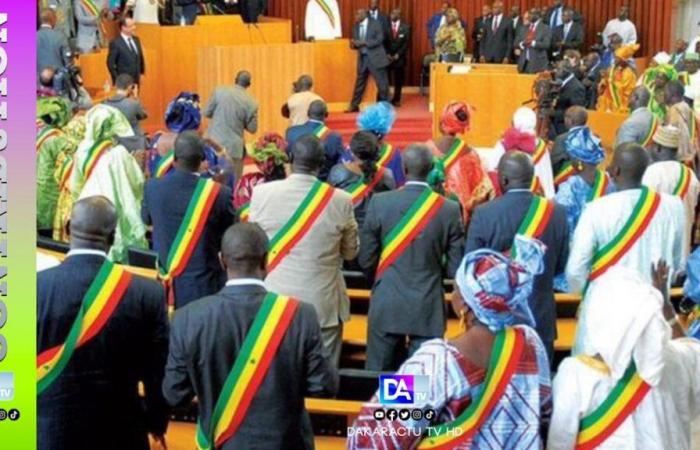The President of the national assembly, being a member of the office, must have a first vice-president in place of Mr. Ismaila DIALLO. It is an error to think that parity only applies to the election of vice-presidents.
The composition of the office of the Assembly put to the test of the law on parity
Inspired by the United Nations Convention of December 18, 1979 and the African Charter of Human Rights of July 11, 2003, the Senegalese legislator adopted law 2010-11 of May 28, 2010 establishing absolute parity between men and women. At the end of the first article of this law, “absolute parity between men and women is established in all totally or partially elective institutions”. This legal requirement had still not been respected by previous legislatures. But at a time of rupture and respect for legality advocated by the Head of State, parity must be respected and applied not from the vice-presidents but from the President who is himself a member of the desk.
Upon reading article 1 of the 2010 law, the office of the National Assembly, including the President (see article 13 of the internal regulations of the National Assembly), must be entirely and alternately composed of a man and a woman. Better, Decree No. 2011-819 of June 16, 2011 implementing the law on parity, in its article 02, lists the National Assembly, its office and its commissions among the institutions in which parity must be respected.
This misinterpretation which would seek to exclude the head of the institution from the application of parity is constantly swept aside by Senegalese jurisprudence.
Consistent case law on the full application of parity
The question of the application of the law on parity still caused a lot of ink to be spilled during the territorial elections of January 2022. The Dakar Court of Appeal canceled all the elections in which a “Male” Mayor had not not a first assistant (see judgments no. 29, 30, 31, 32, 33, 34, 35, 36, 37 of April 19, 2022). The Kaolack Court of Appeal, which had misinterpreted this law by arguing that the Mayor, being elected by universal suffrage, was not concerned by the application of parity, saw its judgment overturned and annulled by the court. supreme of Senegal. Indeed in judgment no. 47 of October 27, 2022, Sheikh Biteye and others against the Mayor of Fatick, the administrative chamber of the Supreme Court declared that the Mayor, being the first member of the municipal office (like the President of the National Assembly), is subject to the requirement of absolute parity and that even its election by universal suffrage cannot constitute an obstacle to the application of the law on parity.
In this case, the dispute over legislative elections or national elections falls within the jurisdiction of the constitutional council. Traditionally, the Senegalese constitutional council declared itself incompetent without a rigorous interpretation of article 92 of the constitution. However, since decision No. 1-C-2024, the Senegalese constitutional judge has demonstrated remarkable courage and innovation. In consideration 7, he affirmed himself as a regulatory judge of national elections who has full jurisdiction in electoral matters. On this basis, he even canceled a decree summoning the electoral body.
We hope that the constitutional council will once again take its responsibilities to cancel and order the resumption of the election of vice-presidents of the national assembly of Senegal.






